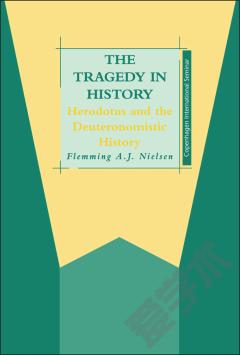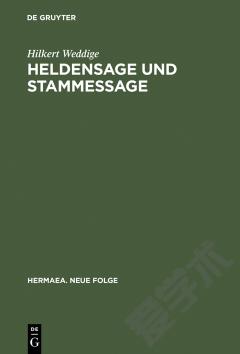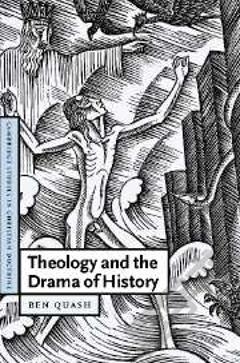The Tragedy in History —— Herodotus and the Deuteronomistic History
----- 历史上的悲剧
The Tragedy in History: Herodotus and the Deuteronomistic History, by Flemming A. J. Nielsen. JSOTSup 251. Copenhagen International Seminar 4. Sheffield: Sheffield Academic Press, 1997. Pp. 192. $45.00/927.50. The objective of this book is to compare Herodotus's history of ancient Greece and the hypothetical "Deuteronomistic History" (DtrH) of ancient Israel, paying special attention to the "tragic mode of presentation" (pp. 18, 161) in both. Nielsen does this in two chapters bracketed by a brief introduction and conclusion, in dialogue with S. Mandell and D. N. Freedman, The Relationship between Herodotus' History and the Primary History (1993), and informed by the predispositions of N. P. Lemche's "Copenhagen School" (not surprising in a revised speciale delivered at Copenhagen University in 1994). Herodotus's work, placed in the context of Ionic natural philosophy, the epic tradition, and fifth-century Attic tragedy (especially Aeschylus's Persae [pp. 4959]), is found to combine elements of all three to constitute something completely new: whereas the works of antecedent Greek historiographers amounted to "the systematic collection and dissemination of the greatest possible amount of facts and stories concerning the past" (p. 26), Herodotus created "an historical account that is corporate, causal, and didactic" (p. 162). The DtrH is then compared to the historiographic texts from the ancient Near East and to Herodotus's work and found to have more in common with the latter than the former: it is "a theological commentary to the course of history" (pp. 112, 113). That the commonalities include "the tragic ornamentation of the course of history" warrants "the assumption that the Hellenic literary tradition, which Herodotus was part of, influenced the Deuteronomistic history" and thus it is "probable that DtrH was written at a time and in a milieu where the Hellenistic influence was important in the Israelite or more correctly, the Jewish tradition" (p. 164). These conclusions are logical enough (if not entirely convincing, since other relevant factors are not taken into account): few would deny that the books of Deuteronomy and the Former Prophets as they exist today in all detail are postexilic compositions and thus chronologically proximate to the Hellenic works in question. In view of Nielsen's disdain for attempting to reconstruct the compositional prehistory of the DtrH (pp. 91-97, echoing B. 0. Long) and his rejection of the source citations in both works as literary fictions (pp. 36-44, following classicist D. Fehling for Herodotus; pp. 112-14, following Egyptologist D. B. Redford for the DtrH), it could be inferred that these compositions have little value as source material for earlier periods. These postulates are deeply controversial, however, and they would carry more weight if espoused by a scholar not inclined to favor them-from, say, Harvard or Tubingen. The "diametrically opposed" understandings of Saul's rejection in 1 Sam 15 by D. M. Gunn and J. P. Fokkelman, as sketched by Nielsen (pp. 127-29), illustrate the inherent subjectivity of "literary" readings of this or any literature: the only real meaning may be in the mind of the reader, but some meanings are more "real" than others, and here he prefers Gunn over Fokkelman, who is "inclined to read a little too much between the lines so that his results become subjective" (p. â¦
{{comment.content}}








 京公网安备 11010802027623号
京公网安备 11010802027623号